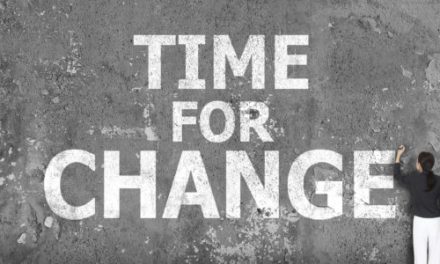By Dana Gornall
If you’re at all familiar with Monty Python, you probably know exactly where this line comes from: Tis but a scratch.
If you are not familiar, it comes from the movie Monty Python and the Holy Grail, a British, satirical comedic film that features the story of King Arthur. In the movie, the Black Knight is challenged by King Arthur and a sword fight ensues. At one point, the knight’s arm is cut off and blood spills everywhere to which the knight responds, “Tis but a scratch.” The fight resumes, and the knight proudly announces that he has had worse, refusing to step aside and continues to be mortally wounded over and over, only to reply with, “Tis only a flesh wound!”
Collapsing on the couch under a blanket at 9:00 pm, I open up my laptop and this scene from Monty Python pops into my head.
I’m exhausted.
My body actually aches at this point from being “on” all day—starting with running the kids to school, driving to and from work, dashing home to change clothes and head back out into the cold, rainy, October evening to a football game to see my daughter cheer, back home again and then back out again to pick up a pizza, then back home, then back out to get my son from his job, until I found myself collapsed on the couch under a blanket.
My daughter now sits on the opposite end of the couch, my dog is whining at the door to go out, and yet I tell myself I can keep going.
Tis but a scratch.
It’s nights like these when the concept of self-care seems like a bigger-than-life caricatural joke. Hot bath? Meditation? Restorative yoga? All of these ideas seem way too far reaching in my exhausted state of mind. How about Netflix and a pillow and maybe I can find enough energy to kick off my boots under this blanket.
I swallow and my throat feels dry. I better not be getting sick, I think to myself. I don’t have time to get sick. Deciding that it is most likely just thirst, I debate whether or not to get up and actually fetch myself a cup of water.
Tis just a flesh wound.
When we allow ourselves to metaphorically bleed out day after day from running this way and that, whom does that benefit?
Both in Buddhism and in Yoga, compassion is something that is stressed—not only toward others but toward oneself as well. In the practice of metta, (metta meaning love and friendliness in Pali) the meditation practitioner either recites or thinks: may you be happy, may you be free from suffering, may you be well. Beginning with yourself, these thoughts are directed inward, toward a person you love, toward a person you are friends with, then toward a neutral person and finally toward a person you struggle with or have had conflict.
But it begins with yourself.
This same concept is found in the Yoga Sutras of Patanjali with the word Maitri.
1.33 In relationships, the mind becomes purified by cultivating feelings of friendliness towards those who are happy, compassion for those who are suffering, goodwill towards those who are virtuous, and indifference or neutrality towards those we perceive as wicked or evil.
(maitri karuna mudita upekshanam sukha duhka punya apunya vishayanam bhavanatah chitta prasadanam)
So the five million dollar question is: To whom am I trying to prove that I can keep going without stopping? Is there a medal earned for round trip miles driven around my small town, to and fro to various activities? Is a certificate handed out at the end of the week for holding my tongue when I’ve felt like unleashing all of my frustrations? Do I get a gold star for getting all of the dishes washed and put away? Does that make me a super mom?
The heart of the matter is that I want to do a good job—as a mother, a friend, a worker and most of all, as a person. And so I tend to plug on, chin jutting forward.
I’ve had worse.
In 1992, a neuroscientist by the name of Richard Davidson conducted a study with a series of Buddhist monks and a group eight long term Buddhist practitioners, by strapping electrodes onto their heads an studying brain activity while meditating and not meditating. “When we did this, we noticed something remarkable,” Davidson said. “What we see are these high-amplitude gamma-oscillations in the brain, which are indicative of plasticity”—meaning that those brains were more capable of change, for example, in theory, of becoming more resilient.
When I am rested, calm and have had some time to take care of things, I have noticed I am a better person overall. And yet when I feel rushed or like I am being pulled in all directions I catch myself snapping at people and losing patience with my children.
Setting aside a little time, whether it be in the morning before everyone awakes or in the evening before bed to practice metta, meditate, read or whatever fuels our spirit, can promote peace not only within, but outward toward others.
Besides, there is no hero in the Black Knight.
Editor: Ty H. Phillips
Comments
- The Power of Choice When Things Feel Out of Your Control (and What the Buddha Got Right About It) - July 21, 2023
- Why That Productivity App Won’t Fix Your Overwhelmed Mind - July 11, 2023
- Chasing Sunsets: A Story about a Dog - January 19, 2023







Self care – so important yet always the last item on a mom’s to-do list. Thank you for sharing.
Now go pencil in 30 minutes for yourself! <3